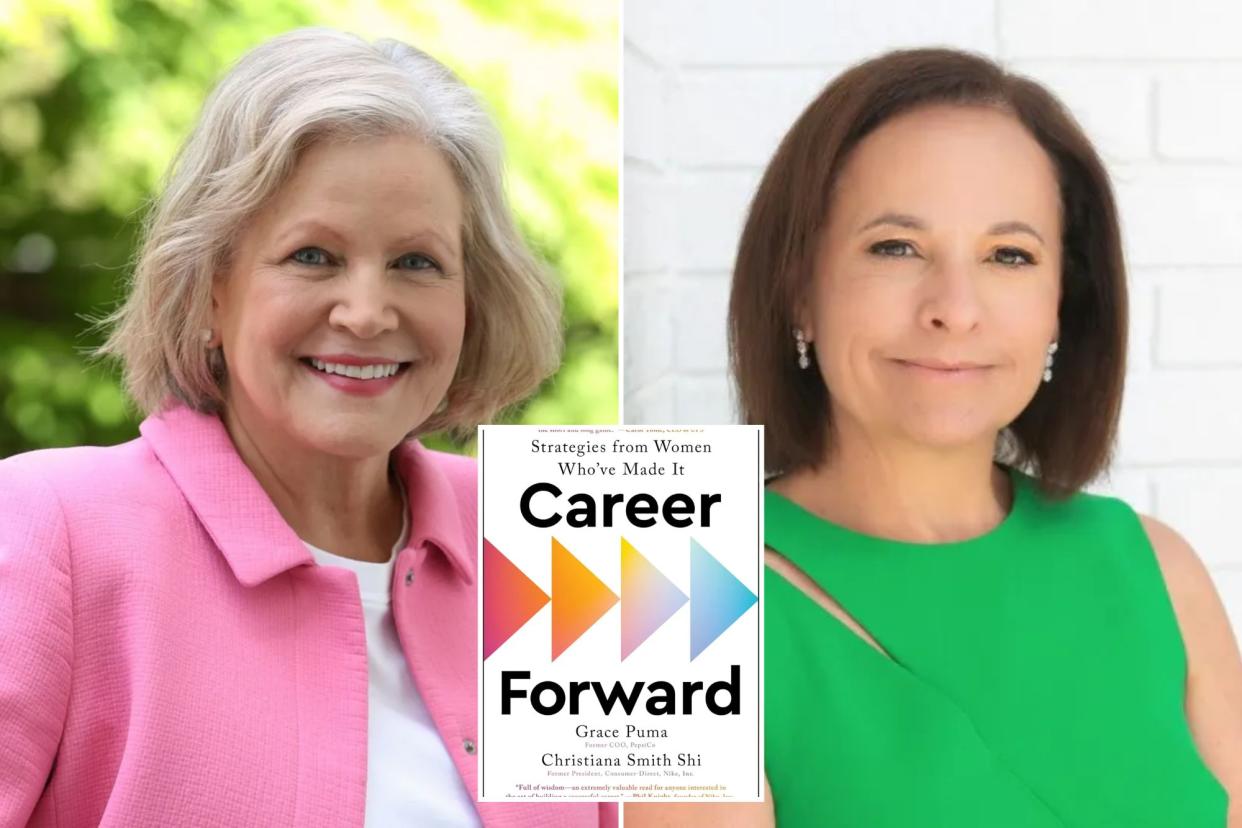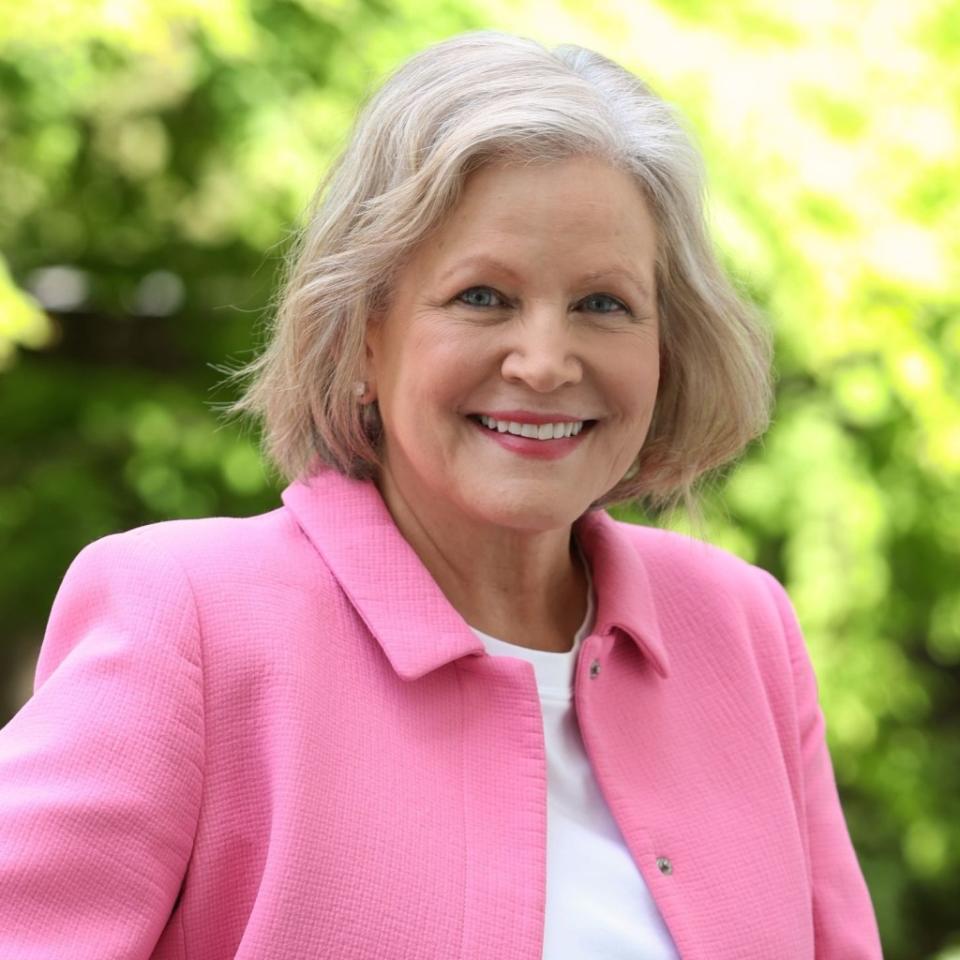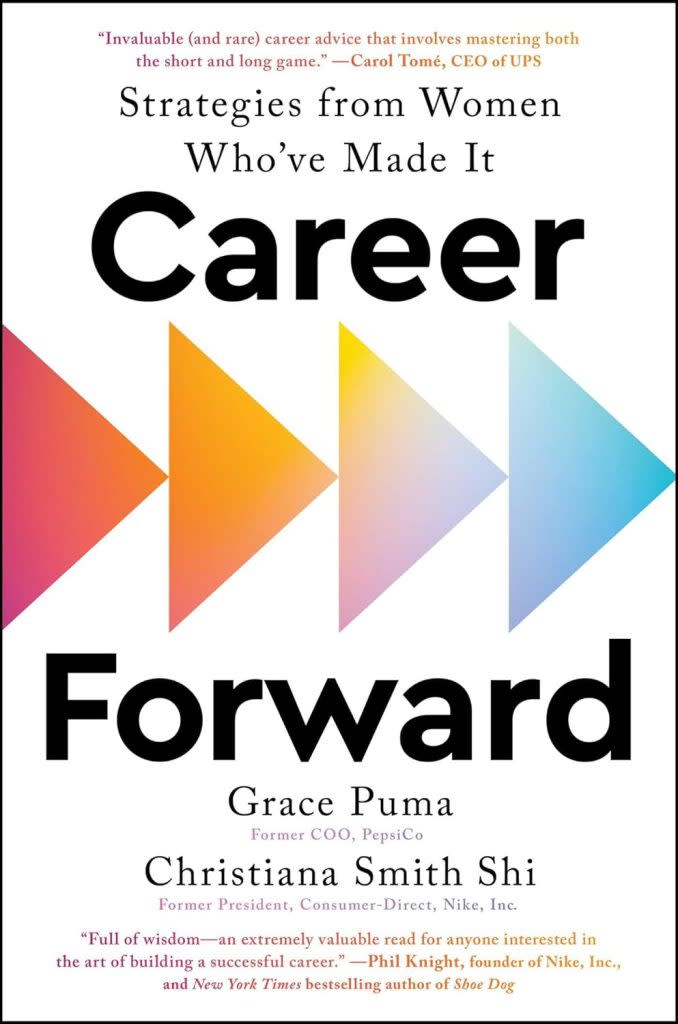What these former top execs want young female leaders to know

March is Women’s History Month, and there’s no shortage of inspiring women worthy of celebrating.
Take Grace Puma, former PepsiCo COO, and Christiana Smith Shi, former Nike president of consumer direct. The pair have shared their secrets to career success in a new book, “Career Forward: Strategies from Women Who’ve Made It” (Scribner), in which they revealed often surprising work advice.
“We know that navigating a career can be difficult, especially today,” said Smith Shi of the book’s origins and straightforward, no-nonsense approach. “We also believe it’s worth it. We’d both found ourselves giving advice to our adult children, who were millennials progressing on their own career journeys. Now we thought about extending that mission to the sea of younger professionals on their own journeys … And we agreed that we’d give our readers the straight scoop. That’s the kind of conversation that has benefited us the most over the years, and that’s the kind of book we wanted to write.”

Smith Shi joined Nike in 2010 as the chief operating officer for global direct-to-consumer, responsible for overseeing global operations. In 2013, she became president of Nike’s DTC business, leading Nike’s retail and e-commerce business globally. During that time revenue grew from $4 billion to $8 billion.
After retiring from Nike in 2016, she proceeded to serve as a director on the boards of UPS Inc., Columbia Sportswear Company and Habitat for Humanity International. She also leads Lovejoy Advisors LLC, an advisory services firm for digitally transforming consumer and retail businesses.
Along the way, Smith Shi, who is based in Portland, Ore., realized you should never leave a role until you think about what it will take to make you stay.
“I learned this lesson the first time I tried to quit my job as a consultant [at McKinsey & Company] after coming back from maternity leave,” said Smith Shi. She was working 12 hours a day, then staying up late into the night with her baby. “I figured I couldn’t handle the job and told my boss I was going to leave. He gave me that advice, which led me to coming back with a proposal to go part time.”
Smith Shi stayed at McKinsey for another 17 years.
Puma, who resides in Tampa, Fla., served as chief operating officer and executive vice president of global operations at PepsiCo Inc. from 2017 until her retirement in 2022. As COO, she was accountable for setting PepsiCo’s global operations capability strategy, operational execution and achievement of business deliverables.
Before joining PepsiCo, she held positions of increasing responsibility at Motorola Inc., Kraft Foods Inc. and United Airlines Holdings.

“Each company has its own culture, business practices and processes,” reflected Puma. “I learned that agility and embracing new business practices applied in different companies and industries accelerated my technical and leadership capabilities and ultimately had a key role in my career trajectory.”
Here, the power duo’s top tips for climbing the ranks at work.
Being underestimated can be an advantage
As Smith Shi highlighted, it’s not uncommon for women to be underestimated at work, sometimes without even knowing it. The former Nike executive cites McKinsey’s report on Women in the Workplace, which said that women leaders are “likely to experience belittling microaggressions, such as having their judgment questioned or being mistaken for someone more junior.”
Smith Shi shared that you may be surprised to know that this can create unexpected opportunities you can leverage.
“Although you probably wouldn’t choose to be an underdog at work, it can be very motivating to come from behind and prove yourself,” said Smith Shi. “In fact, research has shown that having a slight perceived disadvantage is sometimes correlated with better outcomes. The key is to acknowledge the challenge of being in an underdog position and not let it break your spirit.”

Never take the first offer
The average woman worker in her lifetime loses more than $530,000 because of the gender wage gap. “If a woman falls behind, she may never close the gap,” said Puma, who stressed that compensation is almost always negotiable,
Puma advises doing your research on what fair compensation is through sources like Glassdoor and Levels.
“You can also search for information through professional associations and in informal peer discussion,” she said. “Having the facts allows you to plan a strategy for negotiation.”
To boost your pay, Puma’s go-to tactics include asking for the highest base salary going into a new job and starting with your ceiling, not your floor.
Also, consider the compensation more broadly than just base salary (e.g. stock equity, PTO, benefits). You should also request salary re-evaluations when you take on more work, while timing conversations about salary appropriately — “use good judgment whether management is receptive to the ask based on current conditions,” said Puma.

Embrace the risk and discomfort of unconventional job moves
No risk, no reward, as the saying goes.
“If you have a growth stock mentality, you will embrace new and unfamiliar environments where you can stretch yourself, develop new capabilities and gain confidence in your ability to succeed in different environments,” said Puma.
She experienced this when she left a stable company, Kraft, to accept a role in the historically challenging airline industry at United Airlines. To make matters worse, the financial crisis hit during her time there.
While she recognized that this job was one of the toughest jobs and business environments, Puma also knew that it could “yield the best growth and opportunity to contribute.”
Puma was able to engage with the strategic decision of the company beyond her functional role. The experience boosted her professional equity and served her well long term.
“In the end, the airline weathered the financial crisis, transformed the performance and successfully completed a strategic merger,” she said.

